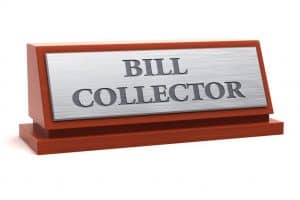
In most cases, bill collectors cannot garnish your disability benefits. There are a few exceptions—including back taxes and unpaid child support—when it comes to Pittsburgh Social Security Disability Insurance (SSDI) payments. Your Supplemental Security Income (SSI) benefits should remain protected, though.
If your bank freezes all your assets for garnishment, including disability payments, you may want to call the Social Security Administration (SSA). The Federal Trade Commission (FTC) also recommends that you contact an attorney as soon as possible.
Exceptions to Garnishment Exemptions for Disability Payments
In some rare cases, a bill collector can garnish your disability benefits to repay certain debts. In general, this involves cases where you owe money to the federal government or because of a previous court verdict.
Some debts that may allow the creditors or bill collectors to garnish SSDI payments include:
- Federal back taxes
- Federal student loans
- Child support and alimony
- Victim restitution following a criminal conviction
- Any other debts you owe the federal government
Note: In some cases, primarily those involving child support and alimony, the government may deduct your owed amount before it deposits any payments into your account. This is the same thing that happens when you receive income from a job and the government garnishes your wages.
Your SSI Benefits Should Be Safe
None of these exceptions we outlined above apply to Supplemental Security Income. There are very few cases when any creditor—including the federal government—can garnish SSI payments.
40+ years of experience from strong, knowledgeable, compassionate attorneys.
Start A Free EvaluationFederal Regulations Usually Protect Disability Payments from Creditors
Federal regulations require all U.S. banks to protect your Social Security Disability payments and other federal benefits from creditors. This prevents freezing or garnishment of disability benefits that come into your account via direct deposit, even if a private creditor gets a verdict against you.
Any time a creditor or bill collector takes steps to garnish your income or freeze your bank account, your bank has a responsibility to protect an amount equal to at least your last two months’ worth of disability deposits. As the Consumer Financial Protection Bureau (CFPB) outlines, this money must remain available to you.
If additional disability income is in the frozen portion or the creditor garnished part of your disability income, call the Social Security Administration to report this issue. You might need to call the court if a court decision results in the garnishment of your disability income.
When Your Disability Benefits are Paid by Check
These federal protections apply only to direct deposits and payments to Direct Express cards. If you receive a paper check and then make the deposit on your own, your bank may not be able to identify these deposits and protect them from garnishment or a bank freeze.
We recommend that you keep a record of these deposits, including your deposit slips and other paperwork related to your benefit payments. These documents could help you prove that the funds are, indeed, exempt from garnishment.
You may also want to consider a separate bank account to avoid mixing your disability benefits with other sources of income, which can be key in protecting them from creditors.
We know you’re hurting. We can help. Free case evaluations, home and hospital visits.
Contact Us Now For HelpTake Action Today to Protect Your Social Security Disability Benefits
Before they can gain access to your funds, creditors must head to court for approval. If they are successful, they can contact your bank with proof of the verdict to initiate the process.
Often, you will receive a garnishment notice before a creditor takes a portion of your income or freezes your bank account. This document should explain what you need to do in order to prove that your accounts contain exempt funds (so that the bank can release them). If you learned a creditor garnished your wages or the bank froze your account without sending you a notice, contact the Social Security Administration as quickly as possible.
It is crucial you follow the instructions included with the garnishment notice, particularly the deadlines. There are often tight deadlines for notifying the court you have funds in your account that are exempt from garnishment. Meeting these deadlines is paramount for ensuring continued access to your money.
Steps to Take If Your Funds are Frozen for Garnishment
First and foremost, if this happens to you and you have funds from Social Security Disability in your bank account, we encourage you to call the Social Security Administration as soon as possible.
Other recommended steps include the following:
- Note any pending checks or charges on your account. If your account is frozen before these payments go through, it could register as insufficient funds.
- Avoid writing any new checks or making payments from the account while it is frozen. Your bank may charge you a fee each time a payment bounces.
- Notify the bank about your exempt funds. You could request that they lift the freeze or release these benefits and waive any resulting penalty fees.
You need an attorney with the experience and dedication to give your case the care it deserves.
Start A Free EvaluationPreventing Bill Collectors from Garnishing Disability Income
There are some strategies that can help you reduce the chances of having your benefits garnished accidentally or purposefully. When possible, create a budget that accounts for all income, including disability benefits and all expenses, to avoid accruing unmanageable debt. Prioritize essential expenses and minimize unnecessary spending whenever possible. Additionally, look to see if consolidating debts or negotiating lower interest rates with creditors can make your debts more manageable over time.
Accessing financial planning and counseling resources can offer valuable guidance. Nonprofit credit counseling agencies provide free or low-cost services, including debt management plans and financial education, to help individuals navigate their financial challenges. These resources can assist in developing strategies tailored to an individual’s unique financial situation, including those receiving disability benefits.
Understanding your rights and responsibilities is fundamental. This includes knowing the protections that disability benefits enjoy from garnishment and the circumstances under which these protections apply. Being informed about your obligations towards debts, even when receiving disability benefits, is crucial. Knowledge empowers individuals to make informed decisions about their finances and to take appropriate actions to protect their assets and income from potential garnishment.
We can address all the legal hurdles that may be keeping you from getting a fair settlement.
Speak To An Attorney TodayHire a Social Security Disability Attorney in Pittsburgh Today
If a bill collector is attempting to garnish your disability benefits or freeze your bank account, call Social Security immediately. Check to see if you can call the court to discuss this decision to garnish your wages, too.
If you need to apply for Social Security Disability or SSI benefits or appeal a denial, call our team at Berger and Green. We offer free case reviews, and you can get started today. We’re ready to help you with all of your Social Security needs.






